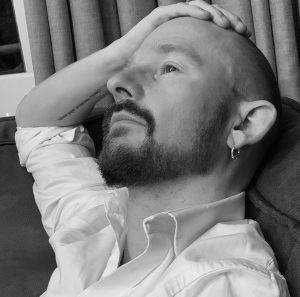A while ago I was called out in the comments on one of my writings about a classist comment I made. I took a few minutes to process before responding and had to admit that the commenter was in fact completely right. I had (and still have) a ton of internalised classism.
During a bike-ride today I had some insights about this, and I’d like to share them here.
Where I’m from
So, this is going to need a little bit of context. I’m originally from a rural town that sometimes makes the news, but never in a positive way. It’s been named “poorest town in the Netherlands” a few times.
It wasn’t a good place for me to grow up. The climate was fiercely anti-intellectual, and me being a bookish scrawny and neurodivergent kid made me the target of a lot of bullying and abuse.
My parents never had a lot of money. My mum used to tell me the stories about how when guests would come over, she’d spend the weeks before trying to work out how they were going to afford buying soft-drinks and snacks.
My dad had a severe nervous breakdown when I was about 5, and he never really recovered. He worked half days at a social labour company (Sociale Werkvoorziening). When I was 7 my mum slowly built up a career of her own, and that made finances better for about a decade until her health gave out and she became partially disabled as well.
As I said, I was always a bookish kid. Besides that my specific form of neurodivergence meant that I had a big vocabulary early on and tended to speak in a way that was considered overly complicated and “stuck up”.
This basically meant that I was rejected by most of my classmates, with some exceptions. These exceptions were all children of more well-off parents, two of being being the sons of local doctors.
I was always very acutely aware that my clothes weren’t as nice, that our house was small and that I didn’t have the same toys as them.
It got better
I did VWO (basically scientific high school) in a nearby town, requiring a 5km bike ride every day. This made such a huge difference. For the first time I met people into the same books as me, who didn’t make fun of my interests. I felt seen, I felt accepted.
I became part of a very close-knit group of friends, and it changed my life for the better a lot. It did bring a different kind of stigma though: my home-town has a pretty crappy reputation. Another guy from the friends group was from the same place, and we kind of made it a badge of pride. We made up this whole mythology about how our town was basically inhabited by cavemen, and how we’d battled sabre-tooth tigers on the way to school. Thinking back this had a fair amount of toxicity to it as well, but it helped us stay afloat.
And worse again
When I graduated I enrolled in a technical university, and there I got hit really hard with the feeling of not belonging. Most of my classmates had parents who were university educated, and the professors made it a point to be harsh to “weed out the chaff”. This was the late 90s, IT degrees were hip and happening and the professors made it very plain that they didn’t expect most people to make it through the first year. Especially those teaching math classes made it clear that they saw it as their job to determine who was and wasn’t going to make it.
Long story short: I dropped out. I had very high grades for the exams I took, but I was so intimidated by the math professors that I simply didn’t shop up for the tests, thinking I’d inevitably fail anyway.
After dropping out, I switched to HBO (Professional education / applied sciences), and easily got a degree in 4 years time. It was during that period that my mum got sick though, meaning my parents could contribute less. That combined with my “failed” first year meant I graduated with a sizeable (for that time) debt.
The metamorphosis
After graduating I moved in with my nesting partner. Her family moved in completely different social circles. I suddenly found myself meeting politicians and even some celebrities. At the same time I was starting my career as a software developer. My mother in law was very instrumental in helping me here. She helped guide me, and basically taught me a lot of the things my parents couldn’t. I’m still grateful for that.
I changed a lot though. I worked on losing my accent, adopting a generic Western way of speaking. I changed my clothes, never really talked about where I was from. To be honest, I was ashamed of my background.
Recently I have read several articles by people with similar experiences. Often they were also from a migration background, adding yet another layer of complexity to their stories. I had the luxury of being able to assimilate. If I could get good enough at adopting the mannerisms, I could blend in. I could pass.
Etiquette
Have you ever wondered why etiquette can seem so weird and arcane? How the rules seem arbitrary and often even counter-intuitive? It’s by design.
The whole point of etiquette is gate-keeping by privileged information. It’s a way to tell where you’re originally from. It shows if you are “from a good family” or “an upstart”. Even if you fall on hard times and your once-expensive clothes have seem better days, your good manners will still set you apart. They will still open doors for you.
Conversely: if you’re very financially successful but don’t know the proper way to hold a fork, it will signal to everybody from a privileged background that you’re not truly one of them.
How do I know this? Because I’m the guy that researched it all. I know exactly how to tie a double Windsor knot in the right way, which buttons on a suit to keep undone. It’s a language, and I set out to learn to speak it.
On a little side note: I ended up teaching my dad how to tie the single and double Windsor knots after having learned it from videos online. It’s still a fond memory.
Honestly though: I was essentially gaming the system, yet also embracing it. In reality the whole system is a mess though. Creating these little in-group markers to set people apart is inherently divisive.
I don’t get to opt out
So, this was a pretty long-winded introduction. Let’s get to the point.
I was ashamed of my background, but I was also angry and resentful. My environment didn’t accept me for who I was, so I rejected them in turn. I have always felt that I wanted to be an intellectual, and in my mind intellectuals were not working class.
That is classism in itself though. Being working class says nothing about which books you read. It says nothing about your interests. Some really great minds came from simple backgrounds. Some of them had no formal education but just educated themselves by reading.
Also: I started out by being ashamed of being intellectually minded in an anti-intellectual environment, and then shifted to being ashamed of being working class once I reached an environment where being of an intellectual was welcome. In both cases I was hiding part of who I am, feeling not good enough.
Letting my bad experiences give me the idea that working-class people are inherently anti-intellectual and “rough” is deeply classist. In fact, it’s the literal discourse that has been used to justify oppression. That the working masses needed to be guided for their own good. That they were unable to think for themselves, and that without proper guidance they’d devolve into alcoholism, idleness and vice. All these ideas are the tools of oppression.
One step deeper: the idea that being of an intellectual disposition is better than being of a practical mind is also deeply classist. Practical skills take years of knowledge to obtain and are often extremely hard to master. I rejected my environment in the same way they rejected me.
I have written a fair bit about toxic masculinity, about how the traditional idea of what a man should be like is far removed from who I am. I’ve often been called “not a real man” because of it. So, yes I reject toxic masculinity. I don’t get to opt out of being a man though. I don’t need to be ashamed of being a man. I just need to aspire to convey a healthy image of masculinity.
But if I follow this train I thought, I don’t get to opt out of being working class either. It is part of who I am. It just means that I should strive to show that you can be from a working class background and be an intellectual. That it’s possible to move between social classes and still take pride in where I come from. To recognize that my experiences growing up were those of a working class kid from a rural background and that that is part of who I am.
As I write this both the farmers and Extinction rebellion are protesting in the Hague. Most of my peers growing up would be with the farmers, whereas I’m solidly on the side of Extinction Rebellion. That is part of the path I have taken through life.
I took a different path. Every step on that path shaped who I am today, and every single step was worth taking. I’ve learned, I’ve grown.
So yes, I am a working-class intellectual. And I should be proud of both sides of me, not ashamed of either.
Further reading
These are the articles I referred to, they are in Dutch and may be paywalled
- https://www.volkskrant.nl/columns-opinie/welkom-in-vinkjesland-lieve-achterstandskinderen-het-is-hier-teringsaai~be40bcd2/
- https://decorrespondent.nl/14219/ik-kan-mijn-sociale-klasse-nooit-ontvluchten-en-dat-is-niet-zo-erg-als-ik-dacht/
Enjoying my writing? Leave me a message on Mastodon!

